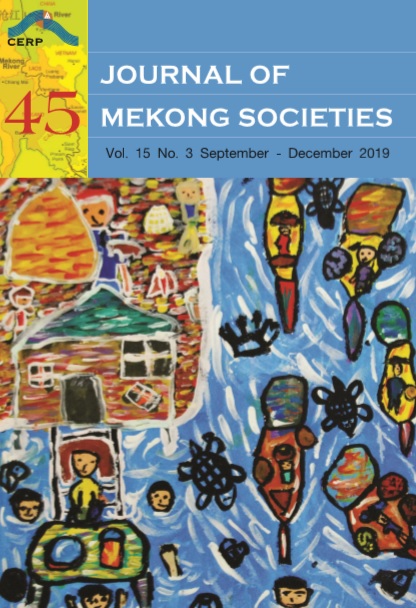Discourse Used by Folk Elites in the Inheritance of the Rocket Festival in Northeast Thailand
Main Article Content
Abstract
This study aims to explain the inheritance mechanism of folk art by focusing on the discourse used by the folk elites who are related to the place or site where the folk art occurs. It used the qualitative research method and selected the Rocket Festival in Wiang Khuk, a subdistrict in Muang district, Nong Khai province as a case study. The study found that two groups of folk elites – the “self-related” and “other-related” – actively played important roles together in inheriting and promoting folk arts. They used their discourse and cultural capital to negotiate and interact with local people between post-figurative and pre-figurative culture, kept the local identity and characteristics of the folk art through inter-generational inheritance and situated teaching, and at the same time effectively improved the functional beauty of folk art and aesthetics in rural everyday life. This mode of operating integrated “people-oriented” and “bottom-up” characteristics to inherit and develop folk art in the context of the folk festival.


